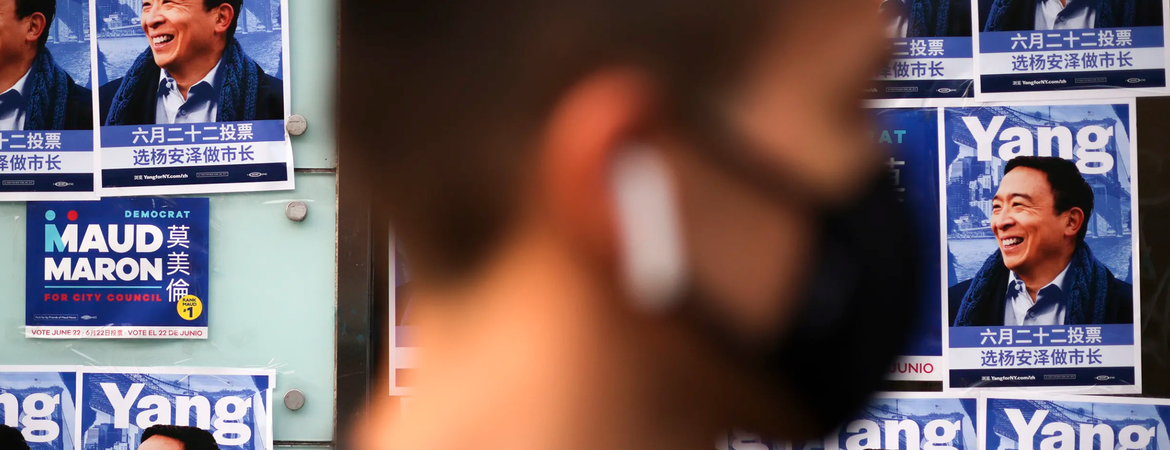Center for Social Innovation

“His candidacy is exciting to many because they think he’s someone who can see what we’re going through. [There’s a sense that] if he gets to be mayor, we won’t have to explain many of the challenges in the Asian American community to him,” says Jo-Ann Yoo, executive director of the Asian American Federation in New York.
Yet, while his supporters appreciate his candid approach, willingness to work across the ideological spectrum, and landmark candidacy, progressives take issue with not only how he has talked about his identity, but also his policies — including calls for more funding for an NYPD Asian Hate Crimes Task Force during a time when many community members are looking for solutions that involve less policing.
Yang’s candidacy underscores the limitations of “descriptive representation” — or the type of representation that comes from a candidate sharing aspects of their identity with constituents. As University of California, Riverside political science professor Karthick Ramakrishnan previously explained to NBC News, in addition to “descriptive representation,” there is also “substantive representation” — or leadership voters see as advocating for their interests.
And that’s what’s at the heart of the complicated feelings some Asian American voters have about Yang’s candidacy: Having someone in office who looks like them, who has maybe shared some of their experiences, is incredibly energizing. But some voters are concerned about the substance of his policies and whether they would actually help Asian American and Pacific Islander communities in New York City.
“Representation is very important,” says attorney Daniel Shin, a progressive voter who opposes Yang, “but we need representation that actually represents our interests and not just our identity.”